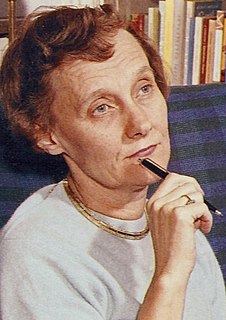A Quote by Bret Easton Ellis
Look how black the sky is, the writer said. I made it that way.
Related Quotes
Look at the sky. It’s not dark and black and without character. The black is, in fact deep blue. And over there: lighter blue and blowing through the blues and blackness the winds swirling through the air and then shining, burning, bursting through: the stars! And you see how they roar their light. Everywhere we look, the complex magic of nature blazes before our eyes.
Of course I'm a black writer... I'm not just a black writer, but categories like black writer, woman writer and Latin American writer aren't marginal anymore. We have to acknowledge that the thing we call "literature" is more pluralistic now, just as society ought to be. The melting pot never worked. We ought to be able to accept on equal terms everybody from the Hasidim to Walter Lippmann, from the Rastafarians to Ralph Bunche.
No. I wanted to tell you that I was proud of you." Clary slewed around to look at her mother. "You were?" Jocelyn nodded. "Of course I was. The way you stood up in front of the Clave like that. The way you showed them what you could do. You made them look at you and see the person they loved most in the world, didn't you?" "Yeah," Clary said. "How did you know?" "Because I heard them all calling out different names," Jocelyn said softly. "But I still saw you.
As the children were sitting there eating pears, a girl came walking along the road from town. When she saw the children she stopped and asked, "Have you seen my papa go by?" "M-m-m," said Pippi. "How did he look? Did he have blue eyes?" "Yes," said the girl. "Medium large, not too tall and not too short?" "Yes," said the girl. "Black hat and black shoes?" "Yes, exactly," said the girl eagerly. "No, that one we haven't seen," said Pippi decidedly.
At some point along the way, I stopped being a writer, and I became a black writer. I never used to be a black writer. I used to write 'Spider-Man,' 'Green Lantern,' whatever was lying around. 'Thor,' 'Hulk,' whatever. Now, if the phone rings or when the phone rings, it's almost exclusively some project that has something to do with my ethnicity.
I would say I'm black because my parents said I'm black. I'm black because my mother's black. I'm black because I grew up in a family of all black people. I knew I was black because I grew up in an all-white neighborhood. And my parents, as part of their protective mechanisms that they were going to give to us, made it very clear what we were.
I remember standing on a street corner with the black painter Beauford Delaney down in the Village, waiting for the light to change, and he pointed down and said, 'Look.' I looked and all I saw was water. And he said, 'Look again,' which I did, and I saw oil on the water and the city reflected in the puddle. It was a great revelation to me. I can't explain it. He taught me how to see, and how to trust what I saw. Painters have often taught writers how to see. And once you've had that experience, you see differently.
Look at your feet. You are standing in the sky. When we think of the sky, we tend to look up, but the sky actually begins at the earth. We walk through it, yell into it, rake leaves, wash the dog, and drive cars in it. We breathe it deep within us. With every breath, we inhale millions of molecules of sky, heat them briefly, and then exhale them back into the world.

































